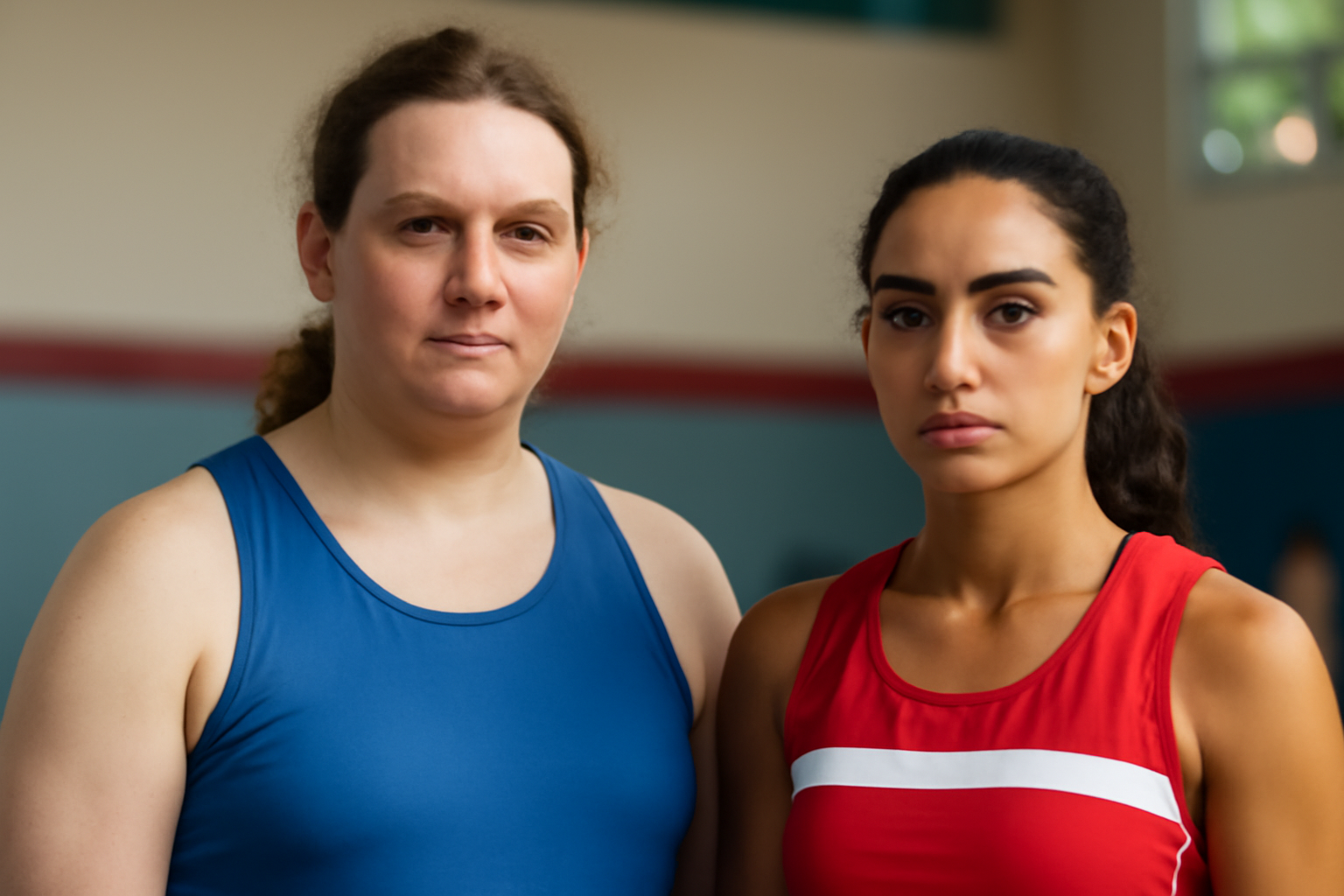
In the world of college sports, there are approximately 510,000 student-athletes competing under the NCAA. Out of this vast number, only a mere 10 athletes are known to identify as transgender. Meanwhile, in the state of Utah in 2022, out of 75,000 high school students involved in sports, only four were transgender, with just one participating in girls' sports.
At the Paris Olympics, the controversy surrounding a dominant cisgender female Algerian boxer highlighted a broader issue. Despite the fact that changing one's gender is illegal in Algeria, and LGBTQ rights are non-existent, she was falsely accused of being transgender. This incident underscores the rarity of transgender women athletes in sports and the misconceptions that accompany their presence.
The narrative that transgender women athletes are a significant presence and a threat to women's sports is largely exaggerated. The phrase "save women's sports" has gained traction across the United States, spurring legislation and media attention disproportionate to the actual presence of transgender athletes.
One expert likened this reaction to "taking a bulldozer to knock down the wrong building," emphasizing that the measures taken against transgender inclusion are addressing a non-existent problem. Despite the minimal number of transgender athletes, the NCAA changed its policy, effectively barring trans women from competing in women's sports following a presidential executive order.
In Utah, even after the governor acknowledged the presence of only one transgender female athlete, the legislature enacted a ban on trans girls in girls' sports. This ban is now being challenged legally, but alternative rules might bypass the court's judgment.
As for the Algerian boxer, Imane Khelif, she prevailed by winning a gold medal, despite the false claims about her gender. This incident conveniently kept the issue of transgender athletes at the forefront during intense political events in the U.S.
Currently, 25 states have laws prohibiting transgender students from participating in sports aligning with their gender identity, although some are temporarily blocked by legal actions. The swift enactment of these bans illustrates the success of anti-transgender campaigns.
A poll conducted by Ipsos for the New York Times revealed that a significant portion of the population is against transgender women competing in women's sports, with 79% opposed. The poll also highlighted a widespread misconception about the prevalence of transgender individuals, as many Americans estimate that they constitute 21% of the population, when the actual figure is around 1%.
This misunderstanding, coupled with the visibility of successful transgender athletes, fuels the notion that transgender women are overtaking women's sports. However, this is far from the truth. Women's sports are thriving, with record-breaking viewership in college basketball and the WNBA. Professional women's soccer and hockey leagues are expanding, offering young girls the opportunity to pursue sports as a career.
Transgender women athletes have not hindered this growth. Instead, they have been marginalized and excluded from sports, while facing societal hostility. They are often used as political pawns to advance broader anti-transgender legislation. Such scapegoating of minorities has historical precedence and remains a significant societal issue today.
To stay informed about LGBTQ sports issues and inspiring stories, consider subscribing to our newsletter. Together, we can support all athletes regardless of their gender identity and foster an inclusive sports environment.
Related Posts
Triumphant Trans Woman Wins Legal Battle and Inspires Others to Stand Up for Their Rights
Breaking new ground: a landmark victory in transgender rights After battling in courtrooms and enduring endless challenges, Diana Portillo, a transgender woman, has secured a monumental victory in her decade-long fight against workplace discrimination. The result? Nearly $1 million awarded in a historic settlement. But this isn't just a win on paper—it represents a powerful precedent in combati [...]
Pride Month in Latin America: Protests and Demands for Equality
**Celebrating Pride and advocating LGBTQ+ rights in Latin America** Pride Month in Latin America was a lively mix where celebration met activism. Communities united, not just throwing a party but making a stand—demanding equality and pushing governments toward better protection and rights recognition. Throughout Latin America, pride events erupted in marches and cultural displays, each with a c [...]
Transgender Erasure Actions Implemented by National Park Service
```html Trump administration's impact on national park service and transgender recognition The Trump administration made notable moves in undermining transgender representation, which included directing agencies like National Park Service not include "T" and "Q" when they refered “LGBTQ” in any official communication. This move seems part a broader plan by this administration aimed at reducin [...]